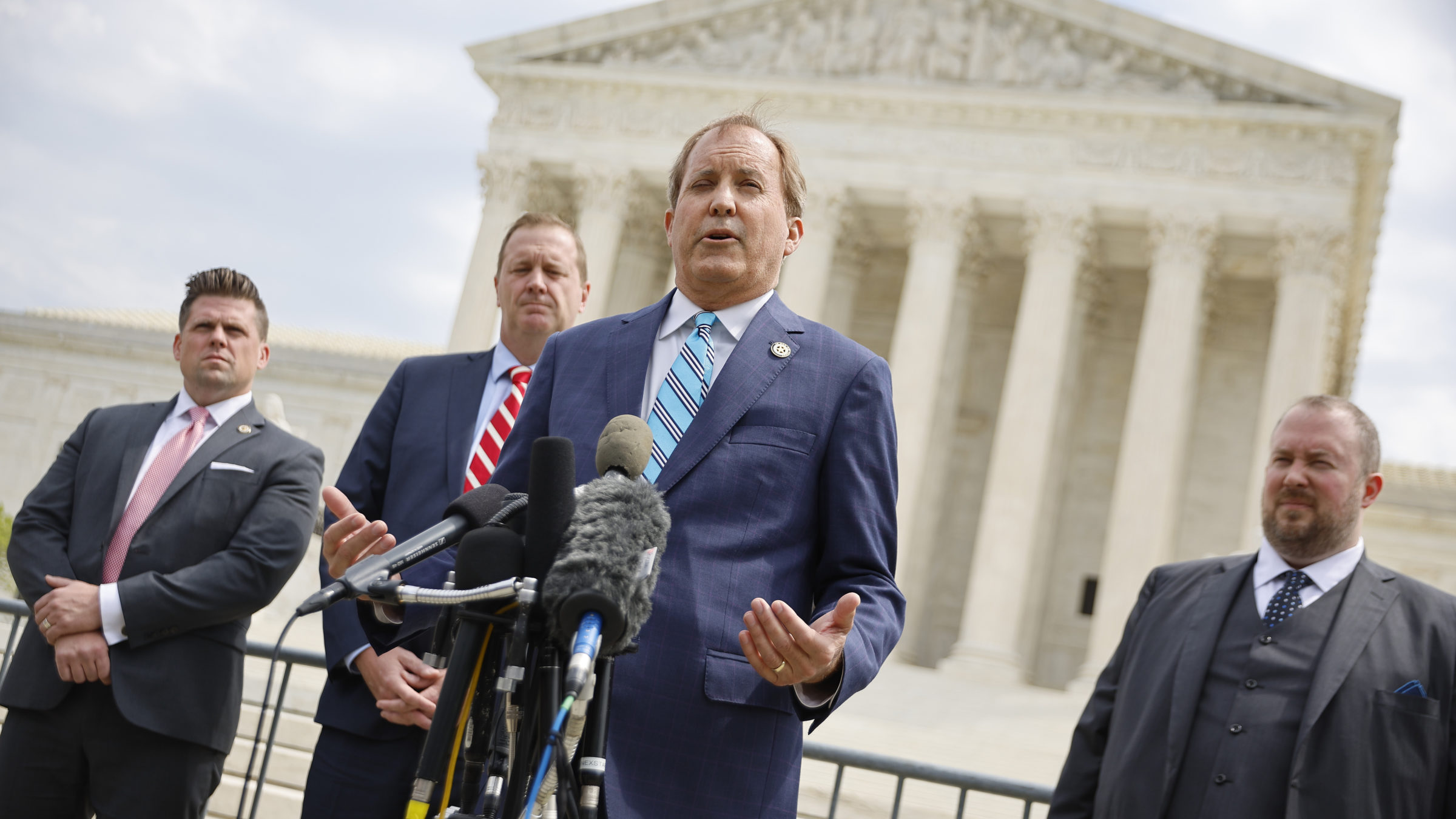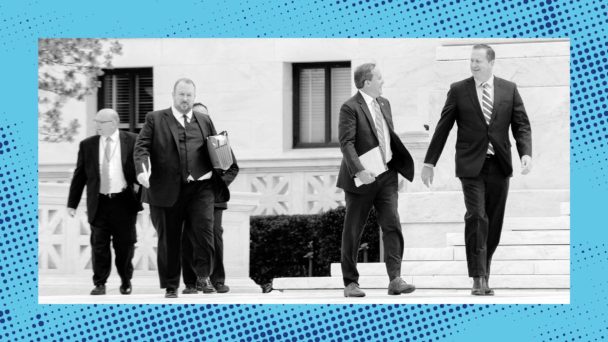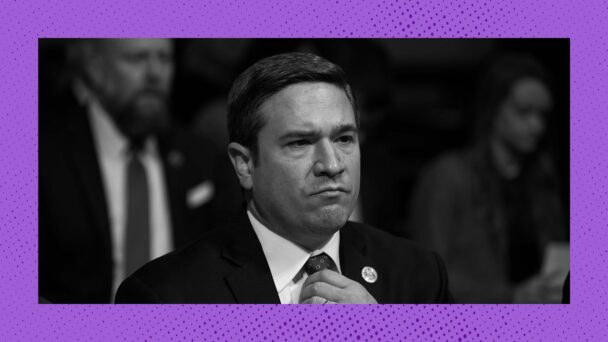State attorneys general are supposed to serve important functions in the daily business of the states: representing the government in civil suits, enforcing laws to prevent corporations from screwing over workers and consumers, and advising the state government on the legality of proposed laws and policies. At their best, these offices step in to protect regular people from being harmed by the wealthy and powerful.
But what if these offices could be weaponized to achieve ends not possible through the regular democratic process? This was one of the Federalist Society’s key insights as it set out to capture the judicial system several decades ago. The conservative legal movement identified attorney general offices as underused tools for achieving its policy goals through litigation, and entities like the Federalist Society made filling attorney general offices a key part of its strategy.
Now that effort is bearing fruit. Starting during the Obama administration, but ramping up particularly under President Joe Biden, state attorneys general have brought an unprecedented number of federal cases against Democratic administration policies, including efforts to block student aid relief, to ensure the safety of transgender students, and to protect the environment. The purpose of these lawsuits is to take policy outside the elected branches and send them to the more conservative-friendly arena of the unaccountable federal courts. But more recently, Republican attorneys general have turned toward usurping the power of local governments, too, to ensure that conservatives retain total control of policy in red states.

(Photo by Joe Raedle/Getty Images)
Chief among the attorneys general pushing this strategy is Texas’s Ken Paxton, who has filed dozens of lawsuits challenging policies passed by Democratic-controlled local governments. In the leadup to the 2024 election, Paxton’s office sued some of the largest counties in Texas over their voter registration efforts, arguing that the counties’ plans would lead to voting by undocumented immigrants. Paxton has castigated the Biden administration’s “open border policies” for having “saddled Texas—and the entire country—with a wave of illegal immigration.” In filings and warning letters, Paxton frames the issue in stark terms familiar to anyone fighting them out in the political arena, describing a state grappling with “ballooning noncitizen populations.” Already, these lawsuits have prompted Democratic officials to rescind voter registration initiatives, as well as driven worries about vote suppression of minority populations.
Paxton has also sued local government officials for the offense of encouraging others to vote. In February 2024, he filed a lawsuit against two administrators in the Denton Independent School District over an email promising coverage to allow staff to vote in the primary. The email included a quote from the superintendent urging educators to “come together to vote on which candidate will support public schools,” noting that significant school funding had been tied up in political fights over vouchers. Paxton alleged that the officials had engaged in unauthorized electioneering within their official positions, but generally this would require stumping for actual candidates, which no one did.
Paxton’s lawsuits do not end with politically charged actions impacting statewide elections. In April 2024, after the Harris County (Houston) government authorized the use of federal funds to start a guaranteed income pilot program for low-income residents, Paxton sued under a state constitutional provision barring “gratuitous payments to individuals,” calling it the “Harris handout.” The Supreme Court of Texas has stated that is essentially an anti-corruption rule, not a prohibition on governments providing aid to vulnerable people. And when developing the guaranteed income program, Harris County considered evidence that such programs reduce costs for emergency services, increase housing security, and stabilize employment. Yet Paxton convinced the Texas Supreme Court to block the program, cutting off payments of $500 per month just as needy families were expecting their first checks.
In February, Paxton challenged the city of Austin’s voter-approved rearrangement of policing priorities to focus on high-level drug offenses rather than marijuana possession. In August, he sued the state fair over its gun safety regulations. Most recently, he sued Austin (again) over its plan to provide funds for residents to receive abortions out of state. Like the voter registration lawsuits, the filings are laden with politically-charged language, asserting that there is no public benefit to aborting “unborn children” and alleging that the program is a plot to “support abortion-assistance organizations and subsidize the procurement of abortions.”

(Photo by Chip Somodevilla/Getty Images)
Even when these lawsuits are unsuccessful, they can have a chilling effect elsewhere—an important goal of this type of litigation. For example, San Antonio recently scrapped plans for an abortion travel fund similar to Austin’s, partly in response to concerns about liability. In other municipalities like Austin, San Antonio, and El Paso that are experimenting with basic income programs, officials worry that expansion will slow in response to Paxton’s lawsuit against Harris County.
The irony is that many of the people engaging in this sort of local repression are also the fastest to denounce centralized control when it comes to (Democratic) federal policies that they dislike. Paxton’s office has an entire news section on its website dedicated to highlighting his office’s resistance to federal policies in the name of federalism, highlighting his efforts to overturn federal environmental regulations, employment protections as applied to state militias, and the ability of federal courts to depose state officials. The same people who purport to believe so fervently in the value of self-government in some contexts are willing to do everything in their power to undermine it when it is politically convenient.
As is the case with their push to capture the courts, conservatives’ efforts to commandeer the power of attorney general offices is a reflection of the unpopularity of the conservative policy agenda. Even in red states, issues like abortion and economic assistance poll well among the public, so increasingly aggressive measures are necessary to maintain dominance—useful tools both for defeating popular policies and for raising the profiles of rising conservative stars. In conservative-dominated courts, Republican attorneys general have put democracy in danger—at least, when it favors Democrats.




